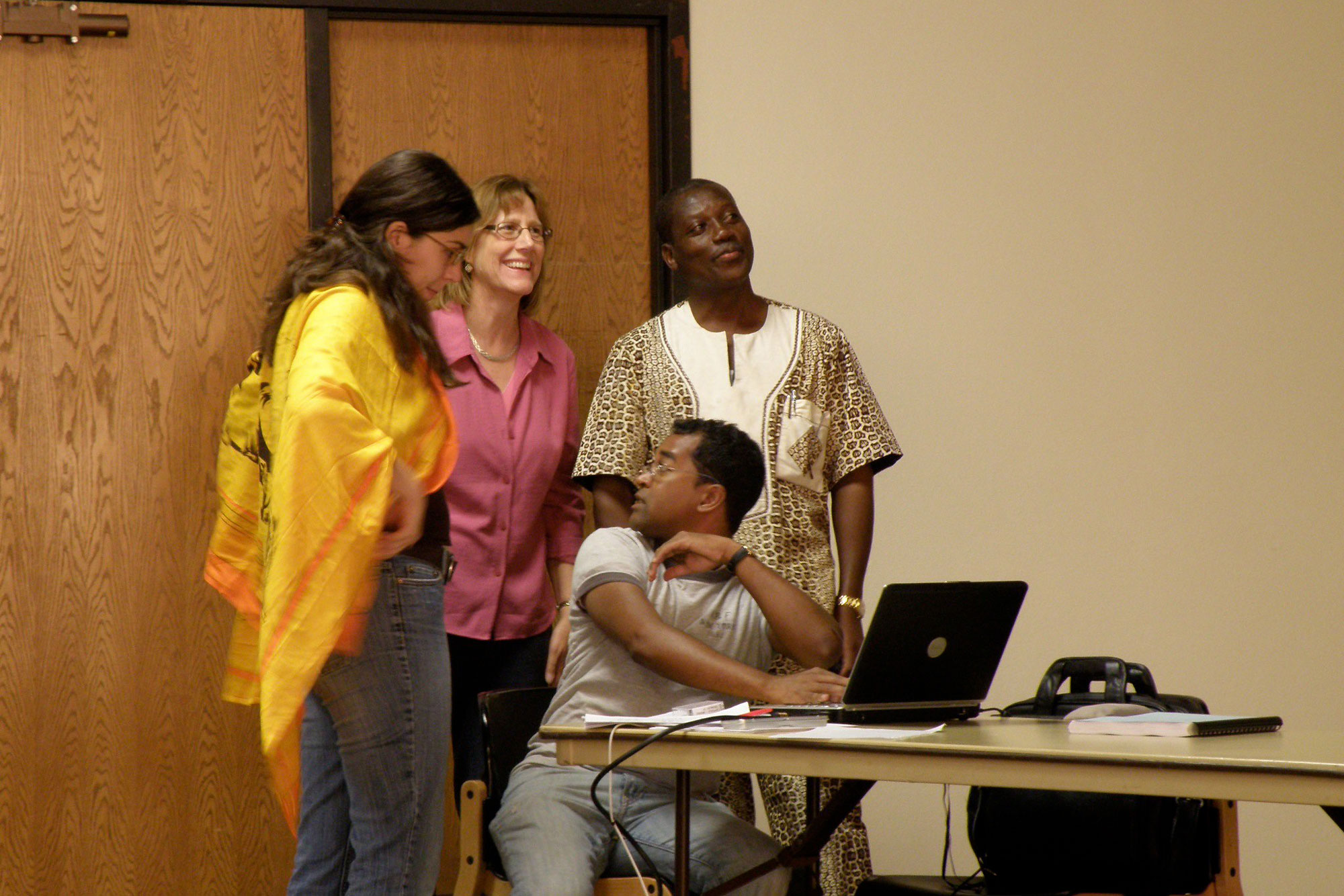Beginning in 2020, the Center for Folklife and Cultural Heritage partnered with the Institute for Collaborative Research (CoLang) to establish a website for the biennial institute. Established through a committee and with additional support from the Endangered Language Fund, the website supports new generations of community language practitioners and linguists, as well as alumni of the institute’s past convenings.
The website brings together materials from past institutes and language reclamation trainings, making them broadly accessible for community language practitioners. The selected workshop materials, gathered from 2008 through 2020, address linguistics, project development, the ethics of language loss, and working with communities in a long-term, collaborative way.
“Language reclamation is about communities having control of the future of their languages,” says Mary Linn, curator of language and cultural vitality at the Center.
Founded in 2008, CoLang is a biennial gathering designed to provide an opportunity for community language activists and linguists to learn about language documentation, descriptive linguistics, and language revitalization. CoLang takes place at different host institutions and has previously convened in California, Oregon, Kansas, Texas, Alaska, and Florida. Each year, CoLang attracts a diverse range of over a hundred participants from around the world. The University of Montana and Chief Dull Knife College will host the next gathering in June and July 2022.
The Montana workshop was originally planned for 2020, with the Center’s Language Vitality Initiative as a key partner. Once the event was canceled due to the pandemic, the Center and the CoLang Advisory Circle pivoted, instead working together to develop a website that improves digital access.
“This centralized website with numerous materials is an invaluable resource for many, and in particular, future CoLang hosts,” CoLang advisory circle member Adrienne Tsikewa says. “It shows the institute’s commitment to providing up-to-date and inclusive training for diverse audiences.”
In addition to gathering previously disparate materials, the website now offers a place for prospective participants to find information on scholarships and past workshops, and prospective host institutions can find expanded information on hosting responsibilities. CoLang organizers can also use the website to learn about past administrative processes and from organizational documents developed during previous institutes.
With today’s website launch, CoLang and the partner organizations hope that easier access to language reclamation training and materials will support the growth and success of community language projects around the globe.
About the Language Vitality Initiative
With Indigenous and minoritized languages under threat, the Smithsonian Center for Folklife and Cultural Heritage’s Language Vitality Initiative supports community-driven language reclamation efforts. Our research promotes language use in new and traditional contexts and strengthens engagement in cultural heritage wellness. We work with digital and emerging media to promote unique voices and worldviews. We seek to educate new generations of community language practitioners and linguists through informal and formal workshops and institutes. All our work is used to educate majority language users about the benefits of living in a multilingual world.
About the Institute for Collaborative Research
CoLang, the Institute on Collaborative Language Research, is a summer training institute for engaging in hands-on experiences in best practices for language documentation, descriptive linguistics, and language revitalization for linguists, researchers, students of all levels, community members, Tribal leadership, language advocates and allies, and other individuals interested in community-based language work. Founded at the University of California, Santa Barbara, by Carol Genetti in 2008, CoLang provides opportunities for participants and facilitators to acquire and share knowledge in language documentation techniques and ethical community collaborative practices.
About the Endangered Language Fund
The Endangered Language Fund was founded in 1996 with the goal of supporting endangered language preservation and documentation projects. Its main mechanism for supporting work on endangered languages has been funding grants to individuals, Tribes, and museums. ELF’s grants have supported 349 projects in the Language Legacies grant program, representing 60 countries; and 84 projects in the Native Voices Endowment grant program, representing 38 languages. They have funded a wide range of projects, from the development of Indigenous radio programs in South Dakota to recording of the last living oral historian of the Shor language of western Siberia, to the establishment of orthographies and literacy materials to be used by endangered language teaching programs all over the world.


